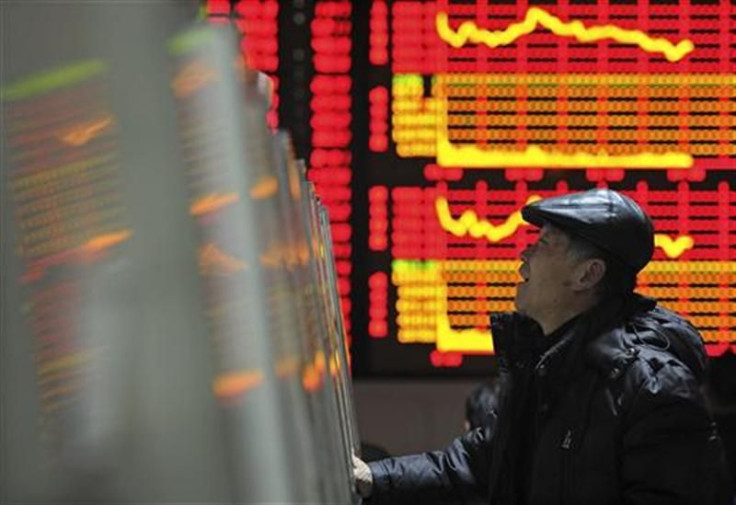Asian Stocks Fall Amid Euro Zone Worries

Most of the Asian markets fell Tuesday as investors' concerns about the debt crisis affecting the euro zone were revived, undermining the optimism initially raised by the bond-buying plan announced last week by the European Central Bank.
The Chinese Shanghai Composite dropped 1.02 percent or 21.87 points to 2113.02. Hong Kong's Hang Seng was down 0.55 percent or 109.51 points to 19717.66. Among major losers were Citic Pacific Ltd (2.51 percent) and Li & Fung Ltd (2.27 percent).
South Korea's KOSPI Composite Index fell 0.20 percent or 3.90 points to 1920.80. Shares of Samsung Electronics Co Ltd rose 0.48 percent and those of LG Electronics Inc advanced 0.97 percent.
Japan's Nikkei Stock Average was down 0.82 percent or 72.39 points to 8796.98. Among major losers were Sumco Corp (6.88 percent), Kobe Steel Ltd (6.35 percent) and JTEKT Corp (4.42 percent).
India's BSE Sensex declined 0.31 percent or 54.98 pointsto 17711.80. Among major gainers were Sesa Goa (5.10 percent), Sterlite Industries (2.34 percent) and Tata Motors Ltd (1.15 percent).
The optimism shown initially by investors about the ECB's willingness to make "unlimited" government bond purchases to calm the situation in Spain began to fade. The "Outright Monetary Transactions" (OMT) program outlined by the ECB is primarily designed to help the larger euro zone economies, such as Spain and Italy. But the market players do have worries about other economies, especially Greece.
The main worry is that Greece does not currently meet the ECB's criteria that countries needing help must be meeting the fiscal conditions set out in the bailout packages. Also the Troika, consisting of the European Union, the European Central Bank and the International Monetary Fund, has indicated that the Greek government must prove that it is able to meet the conditions which it failed to meet in the first few months of its program before it will consider renegotiating the existing deal.
Also worrying the market players is that fact the coalition partners in Greece have not yet reached an agreement on how to generate the 11.5 billion euros ($14 billion) of spending cuts that the Troika originally demanded by June. Also, the Troika is reportedly unhappy with some of the spending measures that the Greek government has already agreed upon.
© Copyright IBTimes 2024. All rights reserved.











